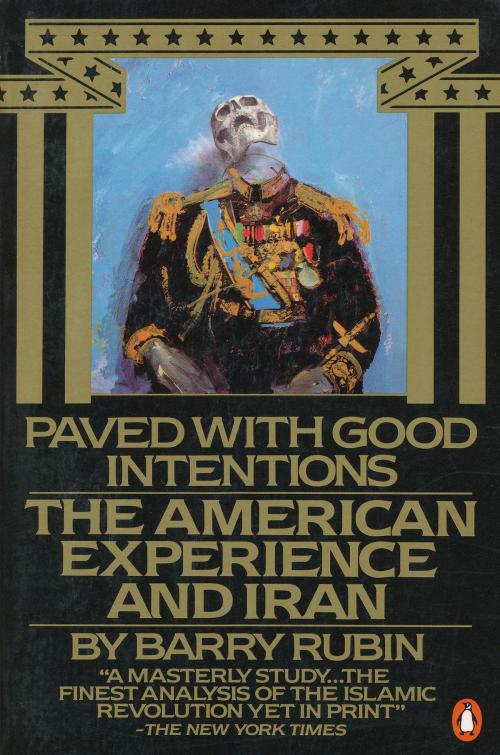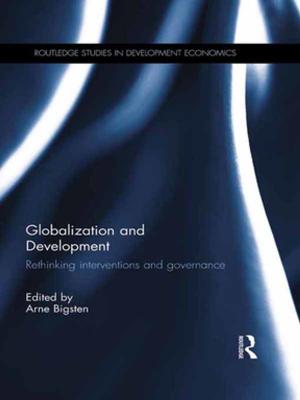| Author: | Barry Rubin | ISBN: | 9781301074068 |
| Publisher: | Barry Rubin | Publication: | February 7, 2013 |
| Imprint: | Smashwords Edition | Language: | English |
| Author: | Barry Rubin |
| ISBN: | 9781301074068 |
| Publisher: | Barry Rubin |
| Publication: | February 7, 2013 |
| Imprint: | Smashwords Edition |
| Language: | English |
Responding to a press-conference question in February, 1980 about the United States role in the 1953 return to power of the shah, President Carter replied that the events were not worth going into because they were “ancient history.” Clearly this was a tactical response—there was no sense adding fuel to the fire while fifty-three Americans were still being held hostage. Yet there was no lack of interest within the American public in the angry charges coming daily out of Iran or in the debate within the United States between those who supported these allegations of American perfidy and those who did not.
On the contrary, there was a strong and widespread interest in calm evaluation and better understanding. But first the public wanted the facts. What exactly had the nation done to cause the current leaders of Iran to hold the United States in such utter contempt, to charge it with such rank imperialism, and to lay at the doorstep of the White House all the sins of its own former monarch?
The temptation to see the history of United States-Iranian relations as a story of heroes and villains, of a few missed opportunities, of colorful incidents and obvious lessons should be avoided. Before reading conclusions into this story, one ought to examine all the evidence—what happened in Iran in 1978 is unintelligible to those who know nothing of what occurred in 1953. Similarly, it is just as impossible to evaluate the events of 1953 without reference to the special relationship between the United States and Iran that had preceded them.
A country’s behavior, as the Iranian crisis so vividly demonstrates, is not merely a product of a rational pursuit of objective national interests. Rather, it is the result of the interaction of the collective historical experience of the nation with the individual life experiences of its citizens. The former creates a nation’s political course, the latter shapes its political consciousness. Whether or not the interaction contributes to the effective fulfillment of a nation’s objective interests is an important question, though not always the controlling question.
There is also a rather common occurrence in politics that might be called the vector principle. A boat sets off for the opposite shore of a river but because of various unconsidered currents ends up several miles downstream. American policies often seemed in theory, if not in execution, directed toward reasonably obtainable, rational goals but failed nonetheless because they did not take fully into account the currents of Iranian and Middle East politics.
In part, United States error may be traced to the triumph of a single-minded strategy over political realities. It involved overdependence on seemingly changeless factors, unwarranted reliance on the strength of the status quo, and an excessively cynical view of considerations presented as moralistic. Certainly, some dictatorships prosper—not all decay—and some are replaced by worse alternatives. Nevertheless, the competence and popularity of foreign governments with whom the United States must deal are factors contributing to or threatening the realization of American foreign policy goals.
Blindness toward these realities was heightened by bureaucratic factors within the United States government—the discouragement of internal debate and honest reporting in the Nixon-Ford administrations and the breakdown of coordination and discipline during the Carter years. These often-neglected considerations played a central role in American misperceptions.
How was the United States transformed in Iranian eyes from their nation’s savior, in the 1940s, to the world-devouring satan of the Khomeinist era? An answer to this question, it seems, will tell much about the triumphs and tragedies of American foreign policy toward the Third World over the past thirty-five years.
Responding to a press-conference question in February, 1980 about the United States role in the 1953 return to power of the shah, President Carter replied that the events were not worth going into because they were “ancient history.” Clearly this was a tactical response—there was no sense adding fuel to the fire while fifty-three Americans were still being held hostage. Yet there was no lack of interest within the American public in the angry charges coming daily out of Iran or in the debate within the United States between those who supported these allegations of American perfidy and those who did not.
On the contrary, there was a strong and widespread interest in calm evaluation and better understanding. But first the public wanted the facts. What exactly had the nation done to cause the current leaders of Iran to hold the United States in such utter contempt, to charge it with such rank imperialism, and to lay at the doorstep of the White House all the sins of its own former monarch?
The temptation to see the history of United States-Iranian relations as a story of heroes and villains, of a few missed opportunities, of colorful incidents and obvious lessons should be avoided. Before reading conclusions into this story, one ought to examine all the evidence—what happened in Iran in 1978 is unintelligible to those who know nothing of what occurred in 1953. Similarly, it is just as impossible to evaluate the events of 1953 without reference to the special relationship between the United States and Iran that had preceded them.
A country’s behavior, as the Iranian crisis so vividly demonstrates, is not merely a product of a rational pursuit of objective national interests. Rather, it is the result of the interaction of the collective historical experience of the nation with the individual life experiences of its citizens. The former creates a nation’s political course, the latter shapes its political consciousness. Whether or not the interaction contributes to the effective fulfillment of a nation’s objective interests is an important question, though not always the controlling question.
There is also a rather common occurrence in politics that might be called the vector principle. A boat sets off for the opposite shore of a river but because of various unconsidered currents ends up several miles downstream. American policies often seemed in theory, if not in execution, directed toward reasonably obtainable, rational goals but failed nonetheless because they did not take fully into account the currents of Iranian and Middle East politics.
In part, United States error may be traced to the triumph of a single-minded strategy over political realities. It involved overdependence on seemingly changeless factors, unwarranted reliance on the strength of the status quo, and an excessively cynical view of considerations presented as moralistic. Certainly, some dictatorships prosper—not all decay—and some are replaced by worse alternatives. Nevertheless, the competence and popularity of foreign governments with whom the United States must deal are factors contributing to or threatening the realization of American foreign policy goals.
Blindness toward these realities was heightened by bureaucratic factors within the United States government—the discouragement of internal debate and honest reporting in the Nixon-Ford administrations and the breakdown of coordination and discipline during the Carter years. These often-neglected considerations played a central role in American misperceptions.
How was the United States transformed in Iranian eyes from their nation’s savior, in the 1940s, to the world-devouring satan of the Khomeinist era? An answer to this question, it seems, will tell much about the triumphs and tragedies of American foreign policy toward the Third World over the past thirty-five years.















